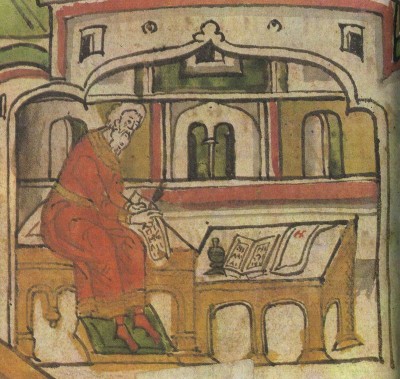The Mediaeval Historicism of Old Russian Literature
What exactly is this mediaeval historicism? In Old Russia artistic generalisation is based for the most part on a single concrete historical fact. New works in Old Russian literature are always connected with a concrete historical event, a concrete historical figure. They are tales about battles (victories and defeats), princely misdeeds, pilgrimages to the Holy Land, and sometimes real people, but more often saints and warrior princes. There are stories about icons and the building of churches, about miracles that people believed in and visitations that are supposed to have taken place. But there are no new works on purely imaginary subjects. From the mediaeval point of view, literary invention is tantamount to lying, and lies are not permissible. Even preachers avoid allegories and fables. Invention creeps in from folklore or is encountered in translated works, but on Russian soil invented subjects (for example, those of parables) gradually take on an historical hue and are linked with this or that historical figure. Literature accompanies Russian life, Russian history, like a mightystream, following on its heels. The gap between an event and the first literary work about it is rarely a large one. Subsequent works change and revise earlier ones, but rarely create a completely new view of the events. In their fear of falsehood, writers base their works on documents, which for them mean all that has been written earlier.

Russian Scribe at Work. From a 17th-century hagiographical miscellany. Institute of Russian Literature, Leningrad
 History of Russian Literature
History of Russian Literature
